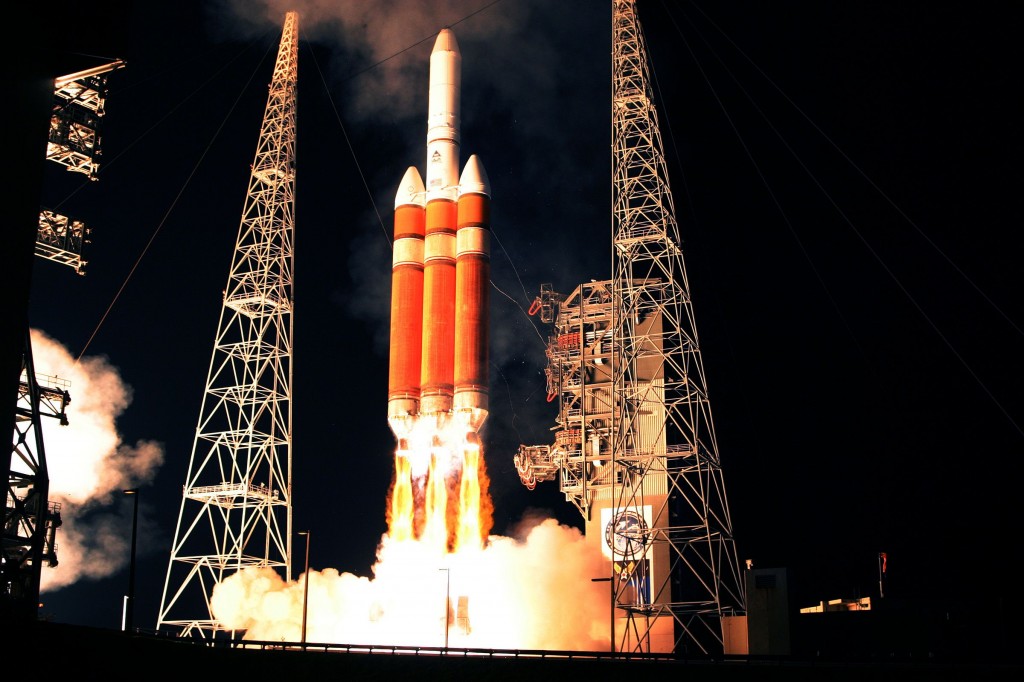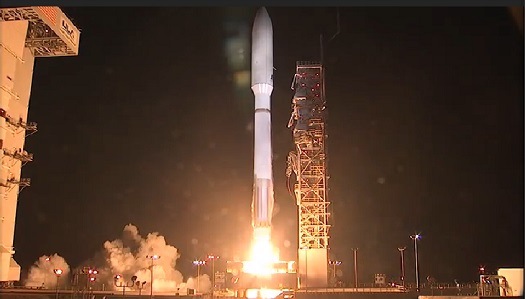ULA Fires Back At SpaceX At Space Symposium; Details Launch Costs
Posted on
COLORADO SPRINGS: After more than a month during which upstart rocket company SpaceX defined the debate about how much America should pay to launch big satellites into space, the Boeing-Lockheed United Launch Alliance crawled out from under its own rock and let fly.
Feisty CEO Michael Gass sat opposite a phalanx of defense and space reporters and finally rebutted charges by SpaceX and its owner, Elon Musk, that ULA charges north of $460 million per launch and is a profligate spender of the American taxpayer’s money. Gass said he wanted to address “a lot of rumors and innuendos about our costs.”
Here is the American military launch world for much of the next seven years:
ULA signed a deal with the Air Force for 70 launches, according to Gass. (For those who’ve followed this mess for a while, the company had earlier only spoken about 36 rocket cores bought by the Air Force);
ULA’s launches cost an average of $225 million;
The Delta 4 Heavy, its most powerful rocket, runs about $350 million a launch;
The lower end of the Delta costs $164 million;
Any launch of the Atlas V (version 401) over the current buy would cost less than $100 million (this is the rocket closest to Musk’s Falcon 9).
That last one may raise eyebrows, especially since the Delta runs $164 million as part of the regular contract. The lower costs result from the fact that the launch maintenance costs — preparing and maintaining the launch pad and the equipment that goes with it — are paid for on annual basis by ULA. So the $64 million is already paid for, ULA representatives explained, and the per-launch price comes down below $100 million.
The discussion Gass had with us was primed by a five-page press release titled “Dispelling Myths about the Cost of EELV and United Launch Alliance.”
The precipitate cause of this press event was SpaceX’s lawsuit against the Air Force, which many observers believe will backfire on Musk by ticking off his biggest customer.
SpaceX really wants some of what is currently ULA’s launch business and is furiously working the halls of justice and Congress, the offices of the Pentagon and intelligence agencies.
Why is Musk so angry he’s willing to sue the Air Force? The service decided it could cut the number of launches it had to buy because satellites were lasting longer and, frankly, there just wasn’t enough money. The number of launches to be competed in the next two years dropped by half, from 14 to seven or eight. Musk’s company filed a protest against the EELV contract award in the Court of Federal Claims, one of three avenues for companies seeking redress through the filing of formal protests about contracts. None of this pleased ULA but the company said relatively little in public and did not explain what the actual launch costs were until today.
It should be fun to witness Musk’s response to the new ULA information. ULA faces its latest test on Thursday, when NROL-33 is set to launch on a ULA Atlas V rocket from Cape Canaveral at 9:05 a.m. The thousands attending the National Space Symposium here will be watching to see if the company can make this successful launch number 69.
Subscribe to our newsletter
Promotions, new products and sales. Directly to your inbox.


